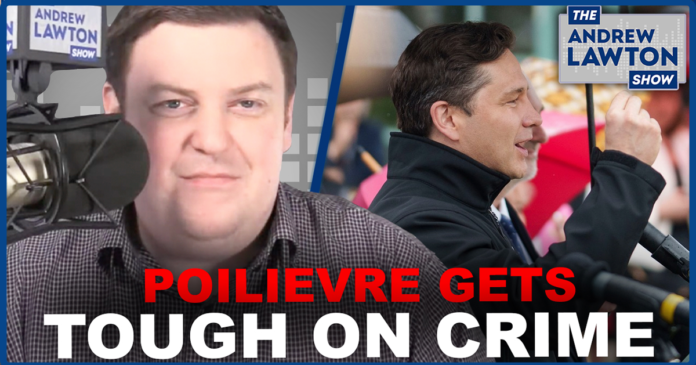“Conservative Leader Pierre Poilievre is making waves with his promise to ensure that criminals stay in jail within the bounds of the constitution. In a bold statement to the Canadian Police Association, Poilievre hinted at employing the Charter’s notwithstanding clause, sparking speculation about the unprecedented move. True North’s Andrew Lawton delves into the significance of this stance.
The controversial capital gains tax hike proposed in the federal budget has raised concerns about its impact on business investments. Economic analyst Jake Fuss from the Fraser Institute sheds light on why this move could be detrimental to the economy.
On another front, the federal government is facing pressure from British Columbia to reverse a pilot project on decriminalizing drug use in public spaces, just a year into the three-year trial. Is this a recognition of failure on the part of the drug-permissive B.C. government? Centre for Responsible Drug Policy founder Adam Zivo joins the conversation to explore this development.
### Charter Rights vs. Criminal Justice
Poilievre’s commitment to keeping criminals behind bars, even at the expense of invoking the notwithstanding clause, raises complex questions about balancing Charter rights with the need for effective criminal justice. While ensuring public safety is crucial, it is essential to navigate the fine line between protecting citizens and upholding fundamental rights.
### Economic Implications of Tax Policies
The potential consequences of tax policies, such as the capital gains tax hike, highlight the delicate interplay between government revenue and economic growth. Striking a balance between generating revenue and fostering business investments is key to maintaining a stable and thriving economy.
As the political landscape continues to evolve, it is imperative to engage in thoughtful discussions about the intersection of policy decisions, constitutional rights, and economic implications. By considering diverse perspectives and exploring the nuanced complexities of these issues, we can strive towards a more informed and balanced approach to governance.”
Reference















